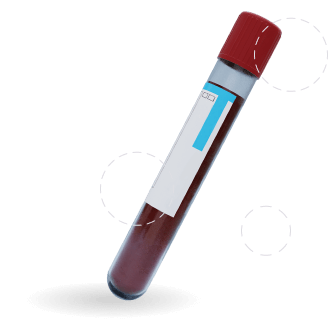
Medical Weight Loss Explained
A lot is said about medical weight loss but we are here to debunk the myths for you.
Screenings > Allergies





An allergy disorder causes the body to be hypersensitive to ordinarily harmless substances including medicines, foods, inhalants, insects and domestic products.

Allergic reactions are usually rapid and result in an inflammatory response which can range from uncomfortable to dangerous. Food allergies can cause serious reactions but also diarrhoea, itching, nausea, abdominal pain and headaches.
You might not realise the cause of your symptoms as they are not immediate or are ongoing. Other allergies such as inhalants can cause respiratory problems and exacerbate existing conditions such as asthma.
At our clinics, you will have a consultation with a doctor who will discuss treatment options and testing options with you. Our allergy testing is conducted by blood which is sent to a leading laboratory for full analysis.
Allergy testing accurately identifies specific allergens that cause allergic reactions in an individual. This precise identification is crucial for effective management and treatment of allergies.
Once the allergens are identified, healthcare providers can develop personalized treatment plans. These may include avoidance strategies, medications, or immunotherapy, tailored to the individual’s specific allergic triggers.
By knowing exactly what triggers an allergic reaction, individuals can take proactive steps to avoid these allergens, significantly reducing the risk of severe reactions like anaphylaxis.


An estimated 10% to 30% of the global population has an allergic disease. This wide range indicates the commonality of allergies worldwide.
In studies involving allergy testing, food sensitization detection rates can be as high as 95% in tested individuals, with common allergens including peanuts, eggs, and soy.
One UK survey found self-reported food allergy rates as high as 15%, which is significantly higher than rates reported from clinical diagnoses by doctors.
Allergy testing plays a crucial role in the management of anaphylaxis, a severe allergic reaction. Early identification of allergens can be life-saving in such cases.
Allergies are the immune system’s hypersensitive responses to substances that are generally harmless to most people. These substances, known as allergens, can include pollen, dust mites, mold, pet dander, certain foods, and insect stings.
When a person with an allergy comes into contact with an allergen, their immune system reacts as though it is a harmful invader, releasing chemicals like histamine. This reaction can cause symptoms ranging from mild, such as sneezing and itching, to severe, such as difficulty breathing and anaphylaxis. Allergies can affect anyone, regardless of age, and can develop at any time in life. They are diagnosed through various tests, including skin prick tests, blood tests, and elimination diets.

Use our online booking engine or book your test by giving us a call.
On the online booking engine select the “appointment type” you need.
You will be seen by one of our friendly doctors or trained clinicians.



Incorporated
in 1998
Experienced doctors & a professional team
Registration
not needed
Up-to-date with the latest treatments & testing
Strictly
confidential
Your medical records are kept private at all times.
Affordable private
health care
Transparent fee structure with no hidden charges
We work with experienced consultants & healthcare professionals who have received positive feedback from our patients, and with whom we have established long-term relationships.
Latest Episode
Tune in to our podcast to explore the world of healthcare and learn from distinguished special guests. We cover everything from preventative measures to cutting-edge treatments so that you can stay informed and up-to-date on health-related things.

A lot is said about medical weight loss but we are here to debunk the myths for you.

Tourist in London and need a GP? Get fast, private care for illnesses, injuries, or lost medication. No registration needed.

With NHS appointments harder to access, many people are turning to private GPs for faster, more convenient care.
Subscribe for latest updates & news


From same-day private GP and blood test appointments to visa medicals, a sexual and reproductive health clinic, and preventative health screenings, we are here to help.
Contact Us
Accepted Insurance Companies






Please note that Walk-in Clinic is a private medical centre & not an NHS service. Harley Walk-in Clinic Ltd company registration no. 07472804